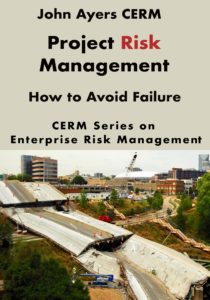 Disruption rules today and into the future. COVID -19 has caused uncertainty and turmoil worldwide. New technologies (Artificial Intelligence; Robotics; Big Data) are driving future work.
Disruption rules today and into the future. COVID -19 has caused uncertainty and turmoil worldwide. New technologies (Artificial Intelligence; Robotics; Big Data) are driving future work.
You may have lost your job or about to due to COVID-19. You may be a middle manager and about to become irrelevant and want to get in a secure future work career. You might be an aspiring Project Manager. Thee are many reasons for switching careers.
Question is, how is it done?
FUTURE WORK
New technologies such as: Artificial Intelligence; Robotics; and Big Data are driving future work. To ensure a good paying and secure job in the future, you need to re-train or switch careers to align with future jobs.
The workforce is changing and will continue to change. In the past, employees were loyal to their employer and they in turn were loyal to them. Companies provided retirement plans and health care plans. It was not unusual to see many employees wearing their 30 or 35 years of service pins. Today, that has all changed. More and more workers want to work remote. COVID-19 has accelerated this trend greatly. Younger workers do not want to work in a corporate office. Pensions plans are not being offered. Health benefits are portable. There is no loyalty for the employer and vice versa.
CAREER SWITCH STORY
This is a recent true story.
Kathy graduated from high school and studied massage therapy. She spent about three years working for other people before opening her own business. After a couple of years, it became obvious to her that she could not make a decent living as a message therapist. She decided to study coding because it was one of the jobs of the future.
She enrolled in a well known “boot camp” and earned her developer certificate in 10 months. Her first job was remote and paid $78 K. She has since worked remotely for three other companies and today earns a six-figure salary. The total time for her to reach this point after deciding to switch careers was two years.
Kathy took a risk and it paid off. She is now ready for the future work. She did it. You can do it as well.
SWITCHING CAREER TO PROJECT MANAGEMENT
More work is projectized today because it is more efficient than other organizational structures such as Functional and Matrix. Project Managers are in demand today and more so in the future. A career as a Project Manager will hold you in good stead for future work.
IDENTIFY SKILLS GAP
The first step is to identify your skills gap. To do this, you need to know what skills a Project Manager needs to be successful. There are four cornerstones of effective project management. Each one has their own skills requirements.
FOUR CORNERSTONES
- Project Management
- Earned Value Management
- Risk Management
- Subcontract Management
PROJECT MANAGER SKILLS
Project Management
- Scope
- Budgeting
- Scheduling
- Quality
- Leadership
Earned Value Management (EVM)
- Understand EVM
- Work Breakdown Structure (WBS)
- Work Package (WP)
- Planning Package (PP)
- EVM formulas
- EVM report
Risk Management
- How to identify risks
- How to analyze risks
- How to handle risks
- How to monitor/control risks
- How to write a risk mitigation plan
Subcontract Management
- How to select a qualified subcontractor
- How to write a thin specification
- How to write a thin statement of work (SOW
- How to write a thin statement of work (SOW)
- Contract types
- Metrics
ACQUIRE NEW SKILLS
- On line courses
- Project Management Institute (PMI) Project Management Professional (PMP) exam
- Webinars
- Project Management books
- Internship
HOW TO GET A JOB
- Update resume
- Apply within your company
- Apply to outside jobs
- Apply for coordinator or assistant Project Management jobs
- Networking
SUMMARY
Be like Kathy. Take a risk and switch to a new career that will be aligned to future work. She did and so can you.
Basic steps for switching your career:
- Decide what career is best for you
- Identify skills gap
- Define how to acquire new skills
- Update resume
- Apply for Project Management and related jobs
- Study and pass PMI PMP exam
Project Manager jobs will be in great demand now and for future work. Switching from middle manager to Project Manager may be a good opportunity for you. Steps discussed herein also apply to aspiring project Managers.
Obtaining a project Manager job can take quite a while. You need patience. Try and get into any Program Management Office (PMO) job where you can learn and gain experience.
If interested and want more detail, consider signing up for my one-day workshop on how to switch jobs and become a Project Manager. My book (Project Risk Management) is an excellent source to learn the new skills outlined in this paper.
Currently John is an author, writer and consultant. He authored a book entitled ‘Project Risk Management. It went on sale on Amazon in August 2019. He has presented several Webinars on project risk management to PMI. He writes a weekly column on project risk management for CERN. John also writes monthly blogs for APM. He has conducted a podcast on project risk management. John has published numerous papers about project risk management on LinkedIn.
John earned a BS in Mechanical Engineering and MS in Engineering Management from Northeastern University. He has extensive experience with commercial and DOD companies. He is a member of PMI (Project Management Institute). John has managed numerous large high technical development programs worth in excessive of $100M. He has extensive subcontract management experience domestically and foreign. John has held a number of positions over his career including: Director of Programs; Director of Operations; Program Manager; Project Engineer; Engineering Manager; and Design Engineer. He has experience with: design; manufacturing; test; integration; subcontract management; contracts; project management; risk management; and quality control. John is a certified six sigma specialist, and certified to level 2 EVM (earned value management).https://projectriskmanagement.info/
If you want to be a successful project manager, you may want to review the framework and cornerstones in my book. The book is innovative and includes unique knowledge, explanations and examples of the four cornerstones of project risk management. It explains how the four cornerstones are integrated together to effectively manage the known and unknown risks on your project.
